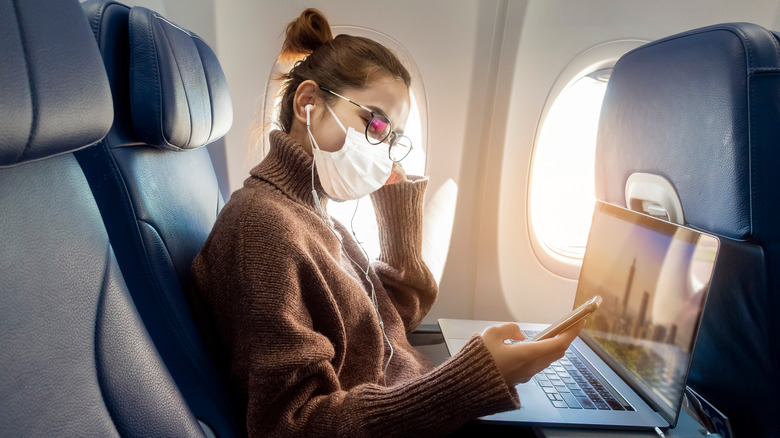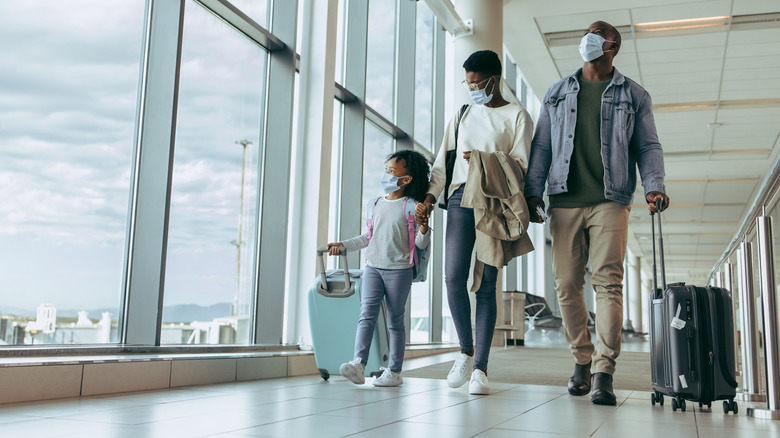What We Know About The TSA's Mask Mandate Extension For Travel
The Transportation Security Agency (TSA) is extending the U.S. mask mandate on public transportation for another month, according to a statement released on Thursday. The mandate had previously been set to expire on March 18, 2022, but the Centers for Disease Control and Prevention (CDC) recommended an extension, which will last through April 18, 2022.
This new guidance comes nearly two weeks after the CDC suggested that most Americans could stop wearing masks in most indoor settings in response to a drastic drop in COVID-19 cases and hospitalizations (via The New York Times). However, COVID-related deaths still remain high and immunocompromised people still face an increased risk of severe illness and hospitalization.
The reason for this extension is to help keep people stay safe while the TSA and CDC come up with a revised policy framework around masking. "This revised framework will be based on the COVID-19 community levels, risk of new variants, national data, and the latest science," the statement read. "We will communicate any updates publicly if and/or when they change."
Masks can reduce the risk of transmission
According to doctors and public health who spoke with Verywell Health, this mask mandate extension is for the best. While the ventilation and filtration systems on airplanes may help reduce the risk of transmission to a certain degree, passengers still run the risk of exposure, especially if they come into close contact with someone who is infected. Although cases may have gone down, the Omicron variant of COVID-19 still remains highly transmissible.
"I do think that it is too soon to lift mask mandates in airports and airplanes," Dr. Beth Oller, a family physician at Solomon Valley Family Medicine, told the site. "While the risk may be low for some, it is driven even lower when good ventilation is coupled with masking. There is a big chance that the flight is not the riskiest part of your trip, but that exposure from being in the airport may present a higher risk as the air filtration is not as good [in] airports."


